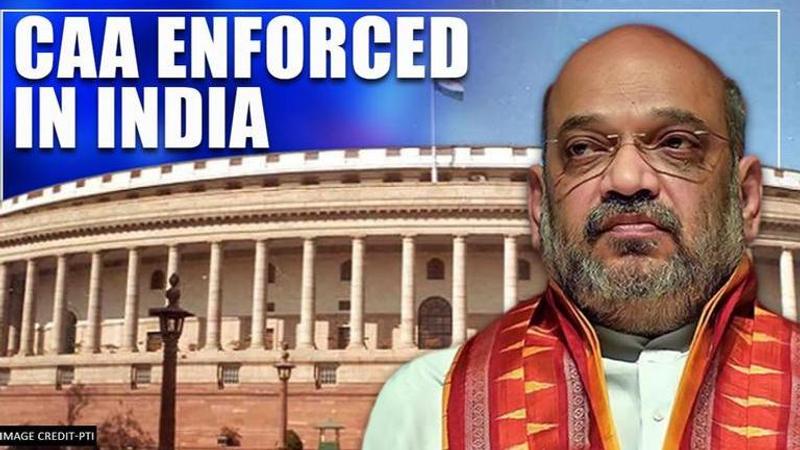Published 22:37 IST, January 10th 2020
Citizenship Amendment Act (CAA) now in force; January 10 Gazette notification accessed
Amid the violent anti-CAA protests throughout the nation, the Centre on Friday has enforced the Act throughout the nation, a day after SC refuses urgent hearing

Amid the violent anti-CAA protests throughout the nation, the Centre on Friday has declared that the Act is in force throughout the nation. Issuing a notice informing the same the Centre stated 'the govt appoints 10th day of January 2020 as the day the provisions of the Act will come into force'. The Act was signed by the President Ram Nath Kovind on December 13.
CAA enforced in India
SC refuses urgent hearing
Earlier on Thursday, Chief Justice of India S A Bobde observed that the country is going through difficult times and there is so much violence going on while refusing an urgent hearing on a plea seeking to declare the Citizenship Amendment Act as constitutional. A bench headed by CJI Bobde expressed surprise over the petition and said this is the first time that someone is seeking that an Act is declared as constitutional. The bench also comprising justices B R Gavai and Surya Kant said it will hear the petitions challenging the validity of CAA when the violence stops.
Anti-CAA protests
The protests against CAA which began in Assam has now spread throughout the country. Violent protests were witnessed in Uttar Pradesh, Assam, West Bengal, Gujarat, Karnataka, Bihar, Delhi, and Maharashtra. While thousands have been detained by the police throughout the country, at least 27 people have died till date in these protests. Several universities - Jamia Millia, Aligarh, Madras University witnessed clashes between police and students which resulted in alleged lathi- charging, tear gas and rubber pellet action by police and vandalism by protestors.
What is the CAA?
Introduced by Home Minister Amit Shah, the Act amends the previous Citizenship Act 1955 to make refugees who are Hindus, Sikhs, Buddhists, Jains, Parsis and Christians from Afghanistan, Bangladesh and Pakistan, eligible for citizenship. Moreover, the Bill exempts the inner line permit areas in Nagaland, Mizoram and Arunachal Pradesh and areas falling under the Sixth Schedule in the regions. It will be applicable to the members of these communities having arrived in India on or before December 31, 2014.
Moreover, it also relaxes the terms of naturalised citizenship, from the original 14 years to five years. Anyone belonging the above-mentioned six religions and three countries can apply for citizenship after residing in India for the stipulated five years. The Act also allows cancellation of Overseas Citizen of India (OCI) cardholders' citizenship if they violate any law, including minor offences like parking violations.
Updated 22:42 IST, January 10th 2020





